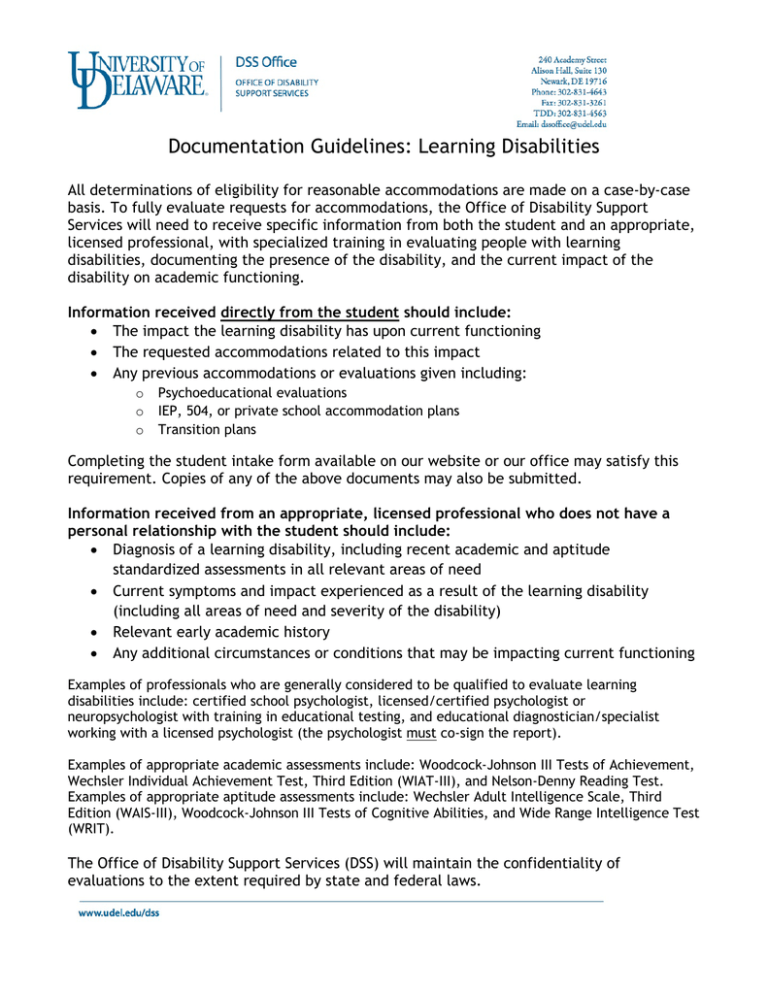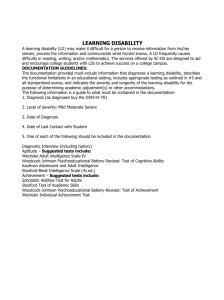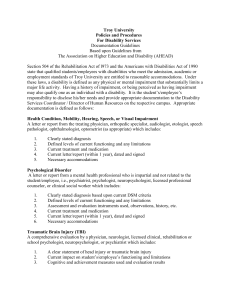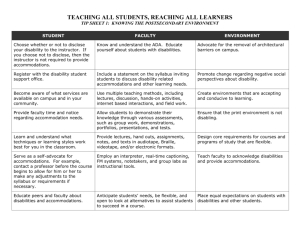Documentation Guidelines: Learning Disabilities
advertisement

Documentation Guidelines: Learning Disabilities All determinations of eligibility for reasonable accommodations are made on a case-by-case basis. To fully evaluate requests for accommodations, the Office of Disability Support Services will need to receive specific information from both the student and an appropriate, licensed professional, with specialized training in evaluating people with learning disabilities, documenting the presence of the disability, and the current impact of the disability on academic functioning. Information received directly from the student should include: • The impact the learning disability has upon current functioning • The requested accommodations related to this impact • Any previous accommodations or evaluations given including: o o o Psychoeducational evaluations IEP, 504, or private school accommodation plans Transition plans Completing the student intake form available on our website or our office may satisfy this requirement. Copies of any of the above documents may also be submitted. Information received from an appropriate, licensed professional who does not have a personal relationship with the student should include: • Diagnosis of a learning disability, including recent academic and aptitude standardized assessments in all relevant areas of need • Current symptoms and impact experienced as a result of the learning disability (including all areas of need and severity of the disability) • Relevant early academic history • Any additional circumstances or conditions that may be impacting current functioning Examples of professionals who are generally considered to be qualified to evaluate learning disabilities include: certified school psychologist, licensed/certified psychologist or neuropsychologist with training in educational testing, and educational diagnostician/specialist working with a licensed psychologist (the psychologist must co-sign the report). Examples of appropriate academic assessments include: Woodcock-Johnson III Tests of Achievement, Wechsler Individual Achievement Test, Third Edition (WIAT-III), and Nelson-Denny Reading Test. Examples of appropriate aptitude assessments include: Wechsler Adult Intelligence Scale, Third Edition (WAIS-III), Woodcock-Johnson III Tests of Cognitive Abilities, and Wide Range Intelligence Test (WRIT). The Office of Disability Support Services (DSS) will maintain the confidentiality of evaluations to the extent required by state and federal laws.








